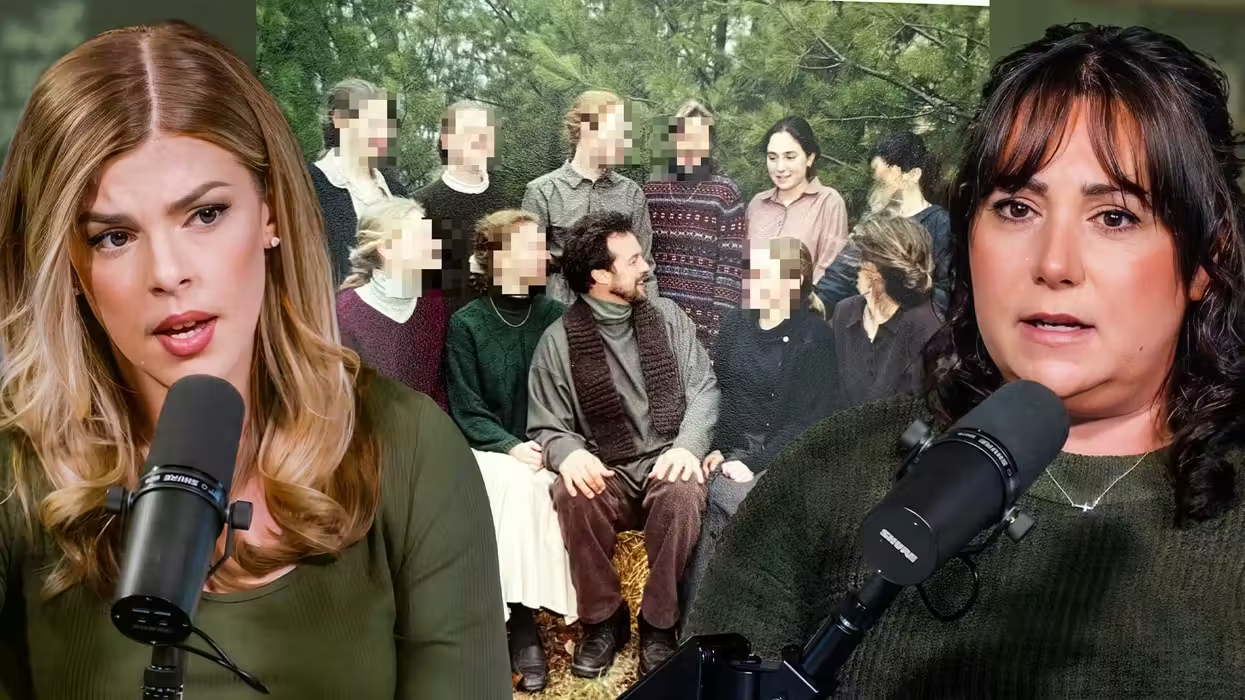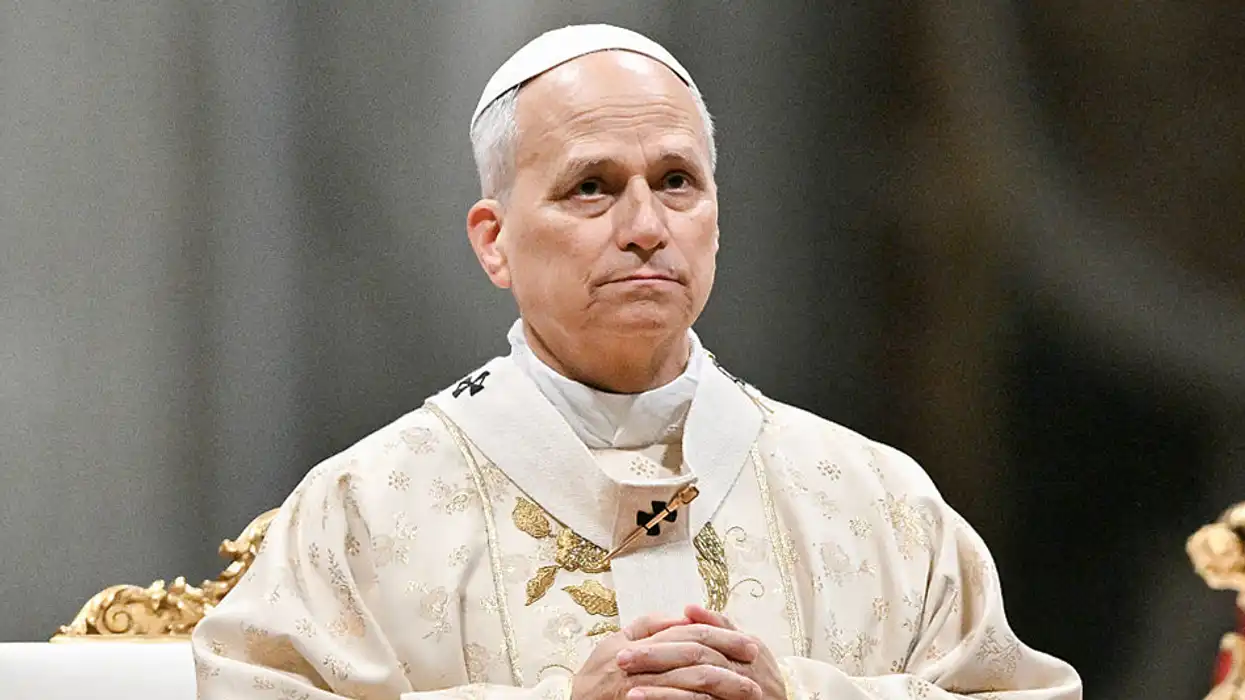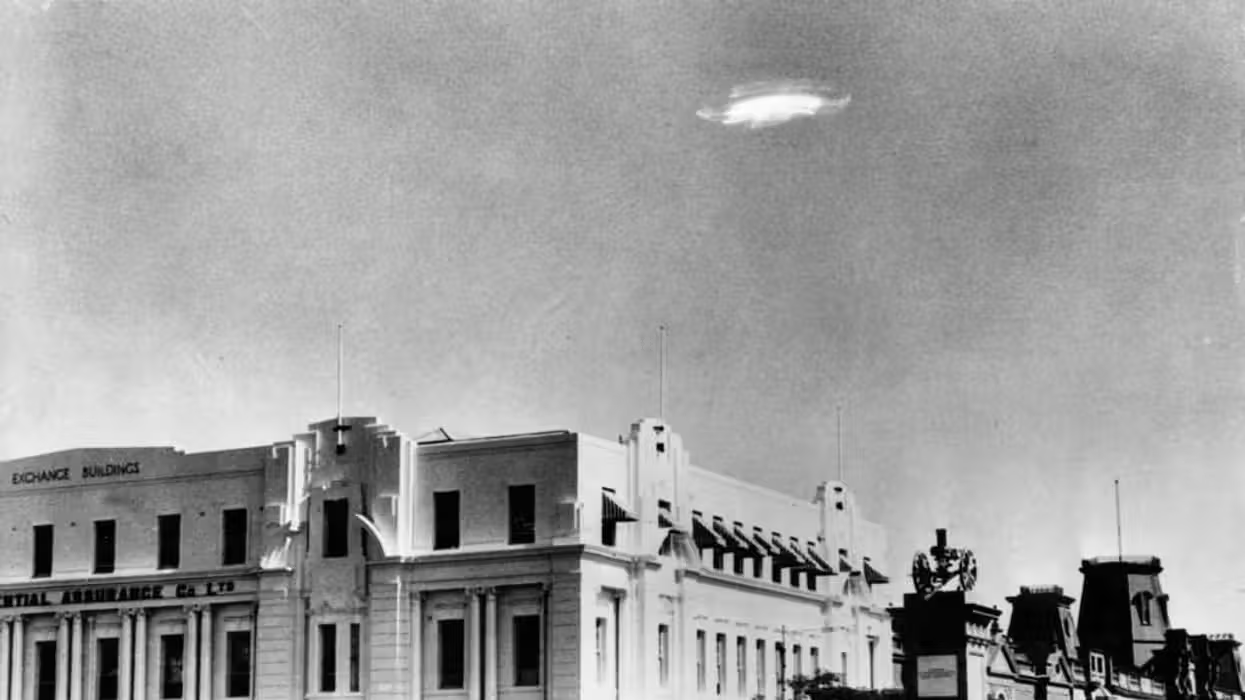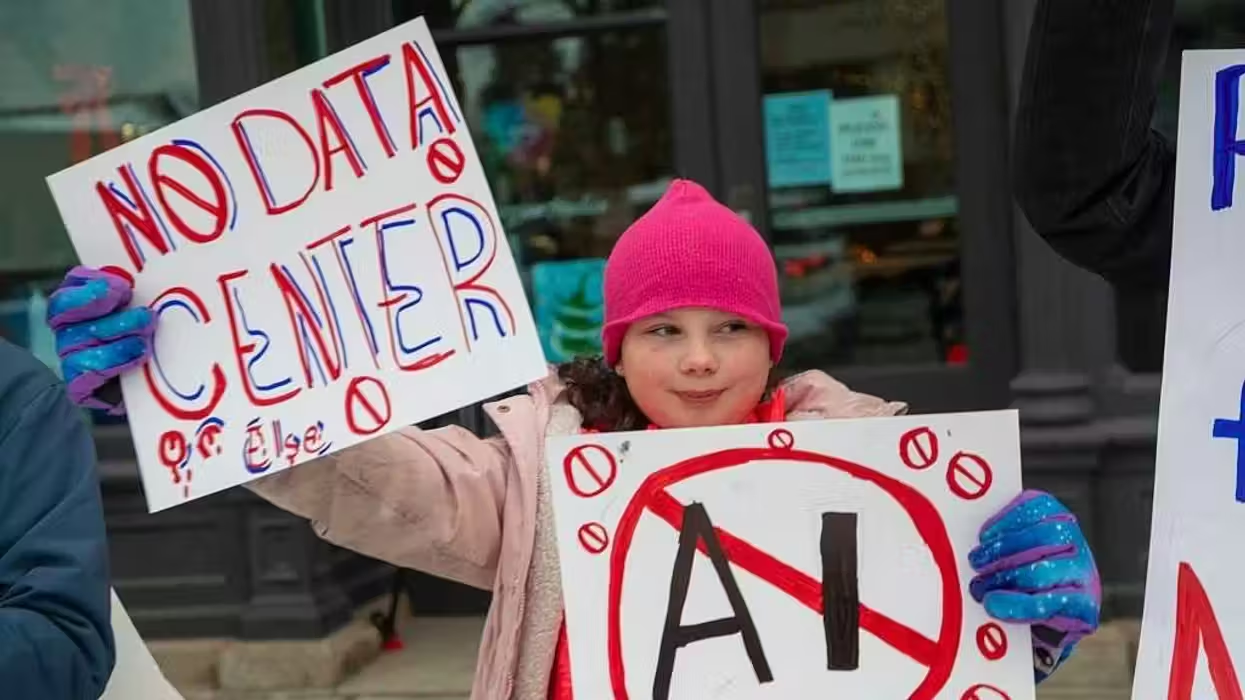MOSCOW (TheBlaze/AP) -- Russia will enforce a new law cracking down on gay rights activism when it hosts international athletes and fans during the 2014 Olympics in Sochi, the country's sports minister said Thursday, appearing to contradict assurances to the contrary from the International Olympic Committee.
Russia's contentious law was signed by President Vladimir Putin in late June (we told you about it earlier this summer), imposing fines on individuals accused of spreading "propaganda of nontraditional sexual relations" to minors, and even proposing penalties for those who express these views online or in the news media. Gay pride rallies also are banned.
 Protesters hold a demonstration against Russian anti-gay legislation and against Russian President Vladimir Putin stands on gay rights, in front of the Russian Consulate in New York, July 31, 2013. Protesters called for a boycott of Russian products and ask the Russian government to repeal the anti-gay propaganda law before the 2014 Winter Olympics in Sochi. Credit: AFP/Getty Images
Protesters hold a demonstration against Russian anti-gay legislation and against Russian President Vladimir Putin stands on gay rights, in front of the Russian Consulate in New York, July 31, 2013. Protesters called for a boycott of Russian products and ask the Russian government to repeal the anti-gay propaganda law before the 2014 Winter Olympics in Sochi. Credit: AFP/Getty Images
"An athlete of nontraditional sexual orientation isn't banned from coming to Sochi," Vitaly Mutko said in an interview with R-Sport, the sports newswire of state news agency RIA Novosti. "But if he goes out into the streets and starts to propagandize, then of course he will be held accountable."
Mutko emphasized that the law wasn't designed to punish anyone for being gay or lesbian. But like the Russian lawmakers who authored the bill, Mutko said athletes would be punished only for propaganda, a word that remains ambiguous under the new law.
"The corresponding law doesn't forbid non-traditional orientation, but other things: propaganda, involvement of minors and the youth."
The law specifies punishment for foreign citizens, to include fines of up to 100,000 rubles ($3,000), time in prison for up to 15 days, deportation and denial of reentry into Russia. Four Dutch citizens working on a documentary film in the northern Russian town of Murmansk were the first foreigners to be detained under the new law, although their case did not make it to court, according to RIA Novosti.
 Gay rights activists carry rainbow flags as they march during a May Day rally in St. Petersburg, Russia on Wednesday, May 1, 2013. The Human Rights Campaign and Human Rights Watch have called on the International Olympic Committee to speak out against Russia's bill to crack down on gay-rights activism as the country makes final preparations to host the Winter Olympics in Sochi in 2014. Credit: AP
Gay rights activists carry rainbow flags as they march during a May Day rally in St. Petersburg, Russia on Wednesday, May 1, 2013. The Human Rights Campaign and Human Rights Watch have called on the International Olympic Committee to speak out against Russia's bill to crack down on gay-rights activism as the country makes final preparations to host the Winter Olympics in Sochi in 2014. Credit: AP
At least one athlete is claiming that he won't be silent about his sexuality if he makes to Russia in 2014. Blake Skjellerup, a speed skater from New Zealand, won't be playing down his sexuality, CBS News reports.
"I'm going to do my best to be in Russia," he told the outlet, pledging to wear a gay pride pin. "If I'm stopped at the border, I'm stopped at the border. My presence there is going to be important for me and important for the community and I guess we're just going to have to wait and see."
While activists and organizations supportive of gay rights have called for a ban on Russian-made products like Stolichnaya vodka in bars across North America, they have yet to find a unified response to the Sochi games.
Instead of a boycott of the Olympics, athletes have made individual gestures and called for gestures of protest, such as a pride parade, to be held during the games.
The IOC said last week that it had received assurances "from the highest level of government in Russia that the legislation will not affect those attending or taking part in the games." It pledged to ensure there would be no discrimination against athletes, officials, spectators and the media in Sochi.
--
[related]

 Protesters hold a demonstration against Russian anti-gay legislation and against Russian President Vladimir Putin stands on gay rights, in front of the Russian Consulate in New York, July 31, 2013. Protesters called for a boycott of Russian products and ask the Russian government to repeal the anti-gay propaganda law before the 2014 Winter Olympics in Sochi. Credit: AFP/Getty Images
Protesters hold a demonstration against Russian anti-gay legislation and against Russian President Vladimir Putin stands on gay rights, in front of the Russian Consulate in New York, July 31, 2013. Protesters called for a boycott of Russian products and ask the Russian government to repeal the anti-gay propaganda law before the 2014 Winter Olympics in Sochi. Credit: AFP/Getty Images






